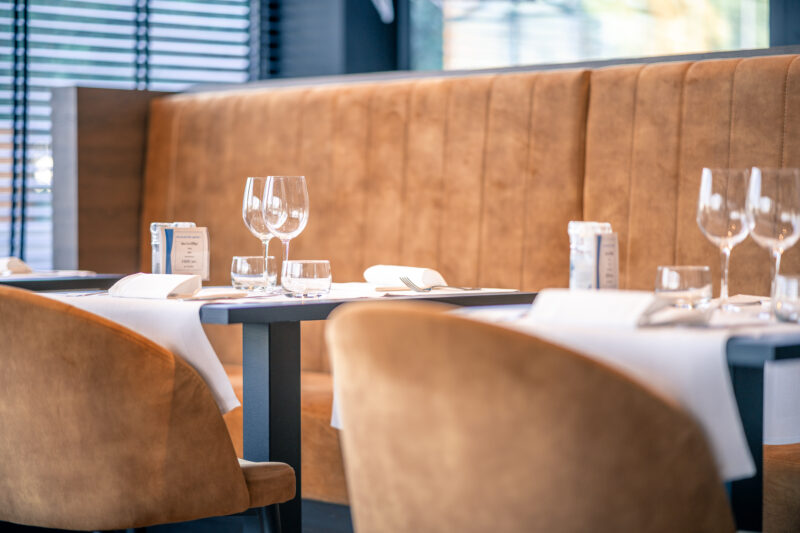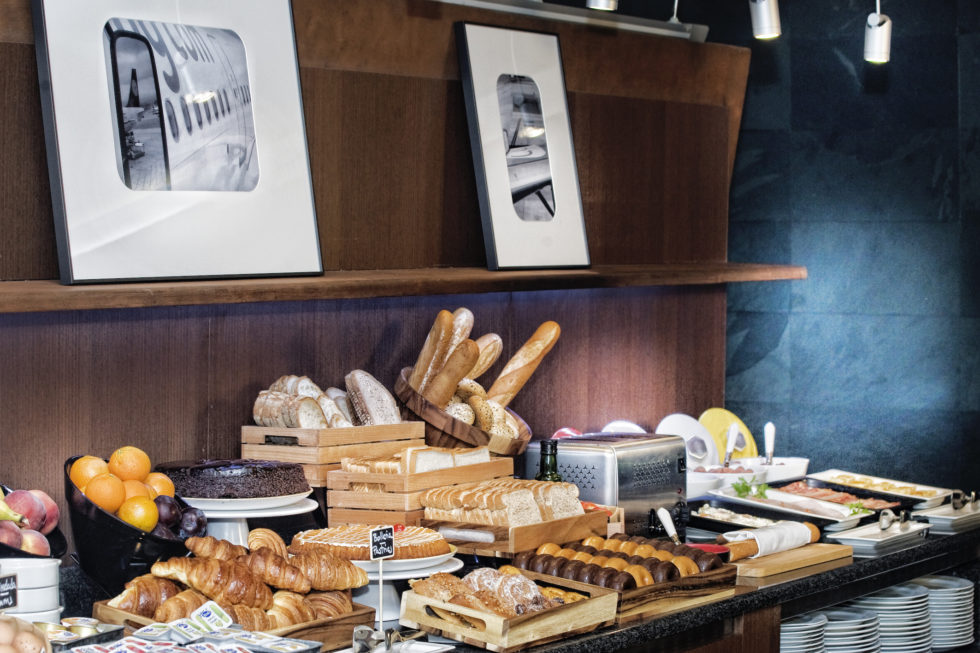In the world of travel, the days of hotels being solely a place to sleep are long gone. For a growing number of travelers, the dining experience has become a central part of the journey, transforming hotels into destinations in their own right. Culinary hotels, also known as foodie hotels, are at the forefront of this movement. These establishments go beyond offering a standard restaurant; they create a rich, immersive gastronomic experience that is deeply integrated into the hotel’s identity. From Michelin-starred dining to hands-on cooking classes and curated culinary tours, these hotels cater to the discerning palate of the modern traveler. This comprehensive guide will explore the rise of culinary hotels, what makes them so special, and how to find the perfect one for your next delicious adventure.
The Evolution of Hotel Dining

For decades, hotel restaurants had a reputation for being expensive, uninspired, and often a last resort for tired travelers. They were seen as a convenience, not a destination. However, a significant shift began in the late 20th century. High-profile chefs started opening restaurants within hotels, recognizing the captive audience and the opportunity to create a world-class dining experience. This movement was further accelerated by the rise of celebrity chefs and a global food culture popularized by television and social media.
Today, hotel dining is a cornerstone of the hospitality industry. Hotels are no longer just housing a restaurant; they are often the creators of a vibrant culinary ecosystem. This can include multiple dining outlets ranging from casual cafes to fine dining establishments, specialized bars, and even unique food experiences like rooftop gardens and on-site bakeries. The modern culinary hotel is a testament to the idea that great food is a vital part of a great travel experience, and it’s a trend that continues to grow and innovate. The focus has shifted from simply feeding guests to engaging them in a culinary journey.
What Makes a Hotel a Culinary Destination?
A culinary hotel is defined by its deep and intentional focus on food and beverage. It’s not just a single restaurant; it’s a philosophy that permeates the entire establishment. Here are the key elements that set them apart.
A. World-Class Restaurants: The cornerstone of any culinary hotel is its dining outlets. This often includes a signature restaurant helmed by a renowned chef. These restaurants are not just for hotel guests; they are destinations for locals and tourists alike, often earning prestigious awards and Michelin stars. The menu is carefully crafted, and the ambiance is designed to create a memorable dining experience.
B. Farm-to-Table Philosophy: Many culinary hotels have embraced the farm-to-table movement. They partner with local farmers, have their own on-site gardens, or even run their own farms. This commitment to fresh, locally sourced ingredients ensures the highest quality food and supports the local community. It also provides a unique story and a connection to the region for guests.
C. Hands-On Culinary Experiences: For travelers who want to do more than just eat, culinary hotels offer a variety of interactive experiences. This can include cooking classes led by professional chefs, mixology workshops at the bar, or wine and cheese pairing sessions with a sommelier. These activities allow guests to deepen their understanding of food and drink and take new skills home with them.
D. Curated Culinary Tours: To showcase the local food scene, many culinary hotels offer curated tours. This could involve a guided trip to a local market to pick out ingredients, a visit to a nearby vineyard or brewery, or a food crawl through the city’s best restaurants. These tours provide an authentic taste of the destination’s unique flavors and traditions.
E. Specialized Bars and Lounges: Beyond the main restaurants, culinary hotels often have specialized bars that are destinations in themselves. This could be a speakeasy with handcrafted cocktails, a rooftop bar with a panoramic view and a unique menu, or a wine cellar with an extensive collection. These spaces offer a different atmosphere and a chance to explore a specific type of beverage culture.
F. Exceptional Breakfast and Room Service: Even the most basic meal is given a luxurious touch. The breakfast buffet is transformed into an elaborate feast with a wide range of fresh, local options. Room service is not just a standard menu; it’s a curated selection of dishes that reflect the hotel’s culinary philosophy, available at any time.
G. Themed and Pop-up Dining: To keep things fresh and exciting, many culinary hotels host themed dinners or pop-up restaurants. This could be a seasonal event, a collaboration with a guest chef, or a unique dining experience in an unconventional location, like a historical cellar or a rooftop garden. These events provide a reason for guests to return and for locals to visit.
How to Find the Perfect Culinary Hotel

Finding the right culinary hotel requires a bit of research, as not all hotels with a good restaurant qualify. Here’s a guide to help you find your ideal foodie destination.
A. Utilize Online Travel Agencies (OTAs): Websites like Booking.com and Expedia often have filters for “fine dining” or “on-site restaurant.” While this is a good starting point, you’ll need to dig deeper to see if the hotel truly has a culinary focus.
B. Read Food and Travel Blogs: Food bloggers and travel writers often review culinary hotels in detail. Their articles provide a personal perspective on the dining experiences, from the quality of the food to the ambiance and the staff’s knowledge. Search for “best culinary hotels in [destination]” to find these resources.
C. Check Restaurant Guides and Awards: Look for hotels whose restaurants are featured in prestigious guides like the Michelin Guide, Zagat, or are on lists like “The World’s 50 Best Restaurants.” These awards are a strong indicator of a serious commitment to culinary excellence.
D. Explore Hotel Websites and Social Media: A hotel that prides itself on its food will prominently feature its culinary offerings on its website. Look for a dedicated “Dining” section with detailed menus, chef bios, and photos of the food. Social media platforms like Instagram are also great for seeing real-time photos of the hotel’s dishes.
E. Consider the Local Food Scene: The best culinary hotels are often in cities or regions with a rich food culture. Research the destination’s culinary reputation. Is it known for its wine, its fresh seafood, or a specific type of cuisine? A hotel that can tap into and enhance this local food scene is likely a great choice.
F. Call the Hotel Directly: If you have specific questions about a restaurant’s menu, a cooking class, or any other culinary experience, don’t hesitate to call the hotel. The staff’s knowledge and enthusiasm about their food and beverage program can tell you a lot about the hotel’s focus.
The Culinary Hotel Experience
A culinary hotel is about more than just the food on your plate. It’s about the entire journey. From the moment you check in, the experience is tailored to stimulate your senses and expand your culinary horizons. The decor might feature elements inspired by the local food culture, such as art made from spices or furniture crafted from old wine barrels. The welcome amenity might be a tasting of a local delicacy, not just a standard chocolate.
The staff, from the front desk to the housekeeping team, are often trained to have a deep knowledge of the hotel’s culinary offerings and the local food scene. They can recommend the perfect wine pairing, suggest a local market to visit, or even share a story about the chef’s inspiration for a particular dish. This level of service creates a more engaging and personal experience. The guests are not just consumers; they are participants in a shared passion for food.
This focus on the culinary journey extends to sustainability and social responsibility. Many culinary hotels are at the forefront of this movement, sourcing ingredients responsibly, minimizing food waste, and supporting local artisans and producers. They understand that a great food experience is not just about taste but also about ethical and environmental considerations.
Conclusion
Culinary hotels represent a new and exciting era in travel, where the destination is as much about the dinner table as it is about the landmarks. They are a testament to the idea that food is a powerful medium for storytelling, culture, and connection. By offering world-class dining, hands-on experiences, and a deep commitment to local flavors, these hotels are creating a new kind of luxury for the modern traveler. They appeal to the traveler who wants to do more than just see a place; they want to taste it, feel it, and understand it through its food.
For the passionate foodie, a stay at a culinary hotel is an opportunity to embark on a journey of flavors, to learn new skills, and to connect with a community that shares their passion. It’s a chance to savor every moment, from the first bite of a meticulously crafted dish to the last sip of a perfectly paired wine. The rise of culinary hotels is not just a trend; it’s a reflection of a deeper cultural shift where food has become a central part of our identity and our travels. The next time you plan a getaway, consider making your hotel the main course. It might just be the most unforgettable part of your journey, and you’ll return home not just with photos, but with a richer palate and a deeper connection to the places you’ve visited.










Discussion about this post